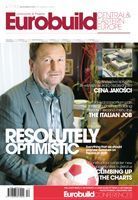The construction of the second metro line in Warsaw is to cost a grand total of PLN 4.117 bln. The clock is now ticking for the winner of the tender – a consortium made up of Astaldi, Gulermak and Przedsiębiorstwo Budowy Dróg i Mostów. While Astaldi gets down to work on this major project, Francesco Paolo Scaglione, the general manager for the CEE region, makes it clear that the company is here to stay Mladen Petrov, Eurobuild CEE: Astaldi is a fairly new player on the Polish market and the company has already won two contracts. What else have you got on the agenda? Are you participating in any new tenders?Francesco Paolo Scaglione, general manager CEE: We began studying the market two years ago, since when we have participated in many construction tenders in Poland. We were initially invited here on a business study trip by the Italian embassy. I didn’t need a lot of persuading that Poland is the right place to be for us – it is a big market.




























































